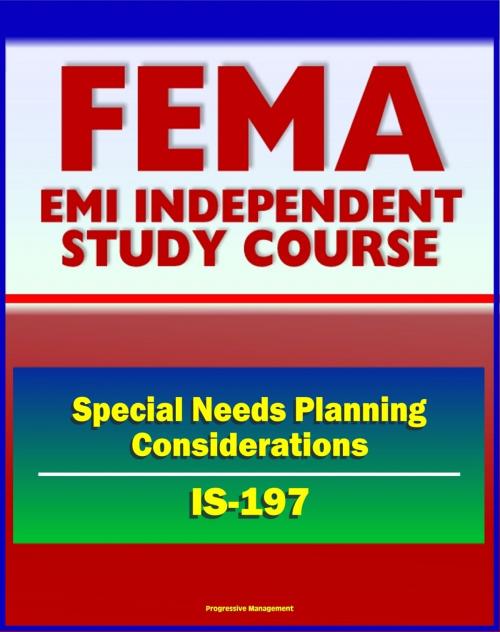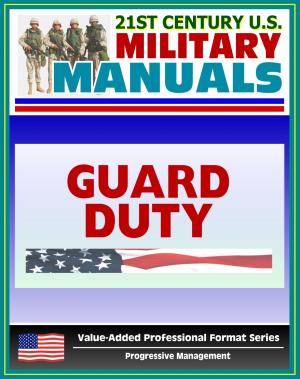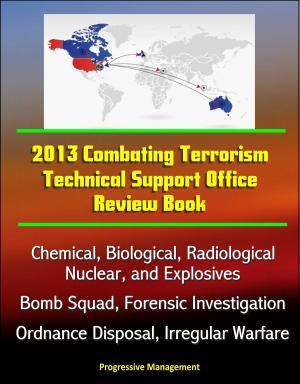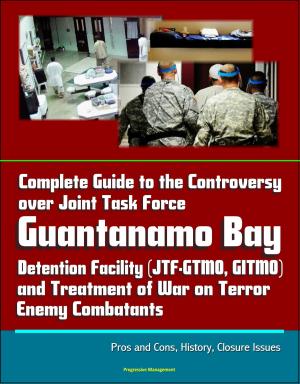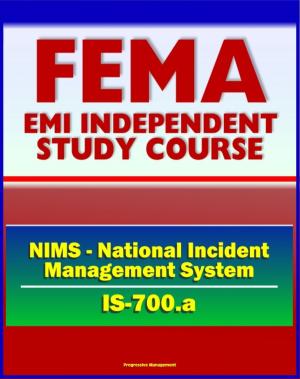21st Century FEMA Study Course: Special Needs Planning Considerations for Service and Support Providers (IS-197) - Registries, Training, Drills, Exercises, Sheltering
Nonfiction, Social & Cultural Studies, Political Science| Author: | Progressive Management | ISBN: | 9781465909152 |
| Publisher: | Progressive Management | Publication: | July 16, 2011 |
| Imprint: | Smashwords Edition | Language: | English |
| Author: | Progressive Management |
| ISBN: | 9781465909152 |
| Publisher: | Progressive Management |
| Publication: | July 16, 2011 |
| Imprint: | Smashwords Edition |
| Language: | English |
This Federal Emergency Management Agency (FEMA) independent training course manual from the Emergency Management Institute (EMI) describes the unique considerations for service and support providers in caring for special needs populations.
The definition of a “special needs population” as it appears in the National Response Framework (NRF) is as follows: Populations whose members may have additional needs before, during, and after an incident in functional areas, including but not limited to: Maintaining independence; Communication; Transportation; Supervision; Medical care. Individuals in need of additional response assistance may include those who have disabilities; who live in institutionalized settings; who are elderly; who are children; who are from diverse cultures; who have limited English proficiency; or who are non-English speaking; or who are transportation disadvantaged. This definition seeks to establish a flexible framework that addresses a broad set of common function-based needs irrespective of specific diagnosis, statuses, or labels (e.g., children, the elderly, transportation disadvantaged).
Topics covered include: Emergency preparedness and planning; special needs registries; training, drills, and exercises; warning systems; evacuation; and sheltering.
This is a privately authored news service and educational publication of Progressive Management.
This Federal Emergency Management Agency (FEMA) independent training course manual from the Emergency Management Institute (EMI) describes the unique considerations for service and support providers in caring for special needs populations.
The definition of a “special needs population” as it appears in the National Response Framework (NRF) is as follows: Populations whose members may have additional needs before, during, and after an incident in functional areas, including but not limited to: Maintaining independence; Communication; Transportation; Supervision; Medical care. Individuals in need of additional response assistance may include those who have disabilities; who live in institutionalized settings; who are elderly; who are children; who are from diverse cultures; who have limited English proficiency; or who are non-English speaking; or who are transportation disadvantaged. This definition seeks to establish a flexible framework that addresses a broad set of common function-based needs irrespective of specific diagnosis, statuses, or labels (e.g., children, the elderly, transportation disadvantaged).
Topics covered include: Emergency preparedness and planning; special needs registries; training, drills, and exercises; warning systems; evacuation; and sheltering.
This is a privately authored news service and educational publication of Progressive Management.
